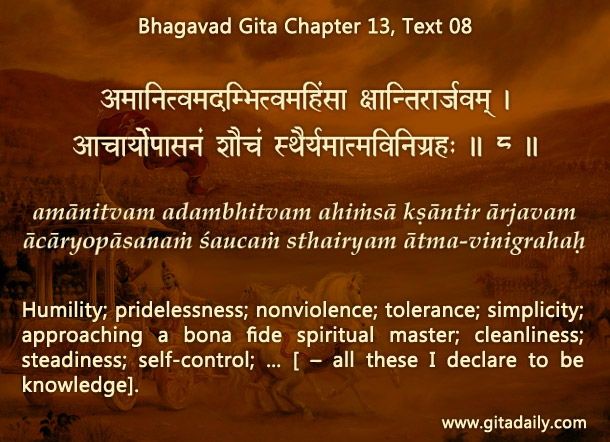When we interact with others, we often start comparing ourselves with them. We feel superior to them if our talents or achievements are greater than theirs. Or we feel inferior if their talents or achievements are greater than ours. Either way, we stay on an emotional roller-coaster that can go wildly out of control, propelling us to either hubris and egomania or self-pity and self-loathing. And all this emotional drama distracts us from focusing on doing our best.
How can we get off this roller-coaster? By cultivating intrinsic self-worth. How? By understanding who we really are.
Gita wisdom explains that we are souls, who are precious parts of the all-attractive divine, Krishna. He values each one of us so much that he is personally present in our hearts to guide us toward our ultimate well-being. He wants each one of us to connect with him internally and contribute to his service externally. When we understand that Krishna has a plan for us, we gain the conviction that we can play a part in making our life better and, to some extent, help make others’ lives better. That conviction becomes the basis of our intrinsic self-worth.
How can we go beyond conceptually understanding that we have intrinsic self-worth to actually experiencing it? Through humility. It helps us approach Krishna with a service attitude and to thereby experience our place and purpose in his scheme of things. Indeed, humility is the first among the twenty virtues that comprise knowledge (Bhagavad-gita 13.08).
The more we cultivate humility in the light of spirituality, the less we obsess over how well others are doing and the more we focus on how we can do our best.
One-sentence summary:
Humility takes us beyond the duality of superiority and inferiority by shifting our focus from comparison to contribution.
Think it over:
- If our self-worth is extrinsic, how does that keep us on an emotional roller-coaster?
- How does spiritual knowledge provide us intrinsic self-worth?
- How does humility take us beyond the duality of superiority and inferiority?
***
13.08: Humility; pridelessness; nonviolence; tolerance; simplicity; approaching a bona fide spiritual master; cleanliness; steadiness; self-control; … [ – all these I declare to be knowledge].
To know more about this verse, please click on the image
Explanation of article:

Podcast:


Leave A Comment